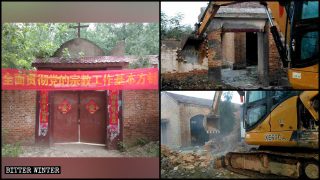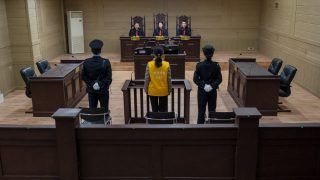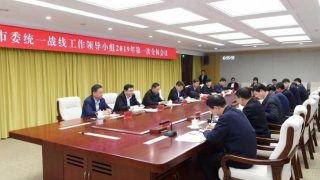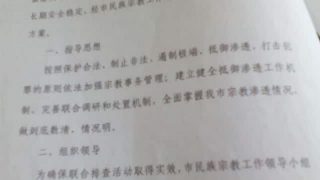As part of a nationwide campaign, the suppression is aimed at dissolving all such groups in China, making sure that they do not resume activities.
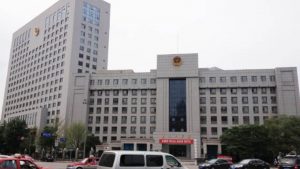
Yang Xiangwen
According to a confidential document obtained by Bitter Winter, the northeastern province of Liaoning has launched a crackdown against Christian churches that have ties with foreign religious communities. Implemented as part of the nationwide Work Plan of the Special Operation to Investigate and Deal with Overseas Christian Infiltration According to Law, prepared by the United Front Work Department and the Ministry of Public Security, the suppression is targeting South Korean Christian churches as well as movements and groups hailing from other countries. Some groups are explicitly listed in the document: Young Disciples of Jesus, Jehovah’s Witnesses, Cru (known as Campus Crusade for Christ until 2011), Evangelical Lutheran Church, Bo’ai Church, Loving Heart Church (사랑 교회), and Canaan Church (가나안 교회).
This harshly-worded document enumerates the main tasks of the special campaign is to dissolve all foreign-related religious groups, by preventing them from organizing, prohibiting believers to travel to neighboring countries for theological training, and strictly controlling foreign-related online evangelism.
Investigations before crackdowns
The document demands firstly to thoroughly investigate all foreign-related religious groups, including their organizational settings, the scale and scope of activities, meeting venues, funds, and members. The document also requires to monitor and analyze the content of their social media and messaging profiles on QQ and WeChat, as well as the state of affairs in associated churches.
The collected information on all believers should be entered into a “working database for resistance against foreign Christian infiltration” to always stay abreast on the developments in these religious groups.
The document also demands to shut down all religious meeting venues, training centers, and theological seminaries, as well as detain and “comprehensively punish” believers by putting pressure on their employers and relatives, threatening to cut off their welfare subsidies, implementing transformation through education activities and even pursuing criminal liability.
The task of transformational education is assigned to local Party committees’ members with the ultimate aim of completely ceasing the activities of these religious groups and ensuring that they do not resume functioning after the crackdown.
The document also demands to covertly cultivate spies among foreigners and locals that have been investigated and punished, by “proactively scouting out and building working relationships.”
Propaganda is essential
Before each religious crackdown, propaganda campaigns to smear groups of believers and manipulate public opinion are commonly used by the CCP to “legitimize” their actions in the eyes of the general population.
The document entrusts propaganda departments with the responsibility of creating exposé articles and videos about the targeted religious groups, proving that these religious groups “violate Chinese law, control believers, and cheat people out of money,” enhancing propaganda work to “educate” and incite the masses to “take the initiative in resisting foreign-related religions.”
As per the document, departments in charge of supervising information online should “control harmful public sentiment” and increase “positive” guidance, while education units must strengthen the management of college teachers and students with a religious background, especially from abroad.
To avoid calling attention to the crackdown on foreign-affiliated religious groups, the document demands to not organize suppression activities during major domestic political events or “sensitive” days.
Confidentiality and discipline should be strictly enforced: Uploading campaign-related documents to websites or making work arrangements through messaging platforms or other non-confidential channels is strictly prohibited.
The guiding spirit of the document is based on Xi Jinping’s “important instructions” to resist foreign religious infiltration, that include the call to make sure that overseas religious forces do not establish functioning branches in China or the formation of religious forces that are “against the Party and the government.”
source:BITTER WINTER
